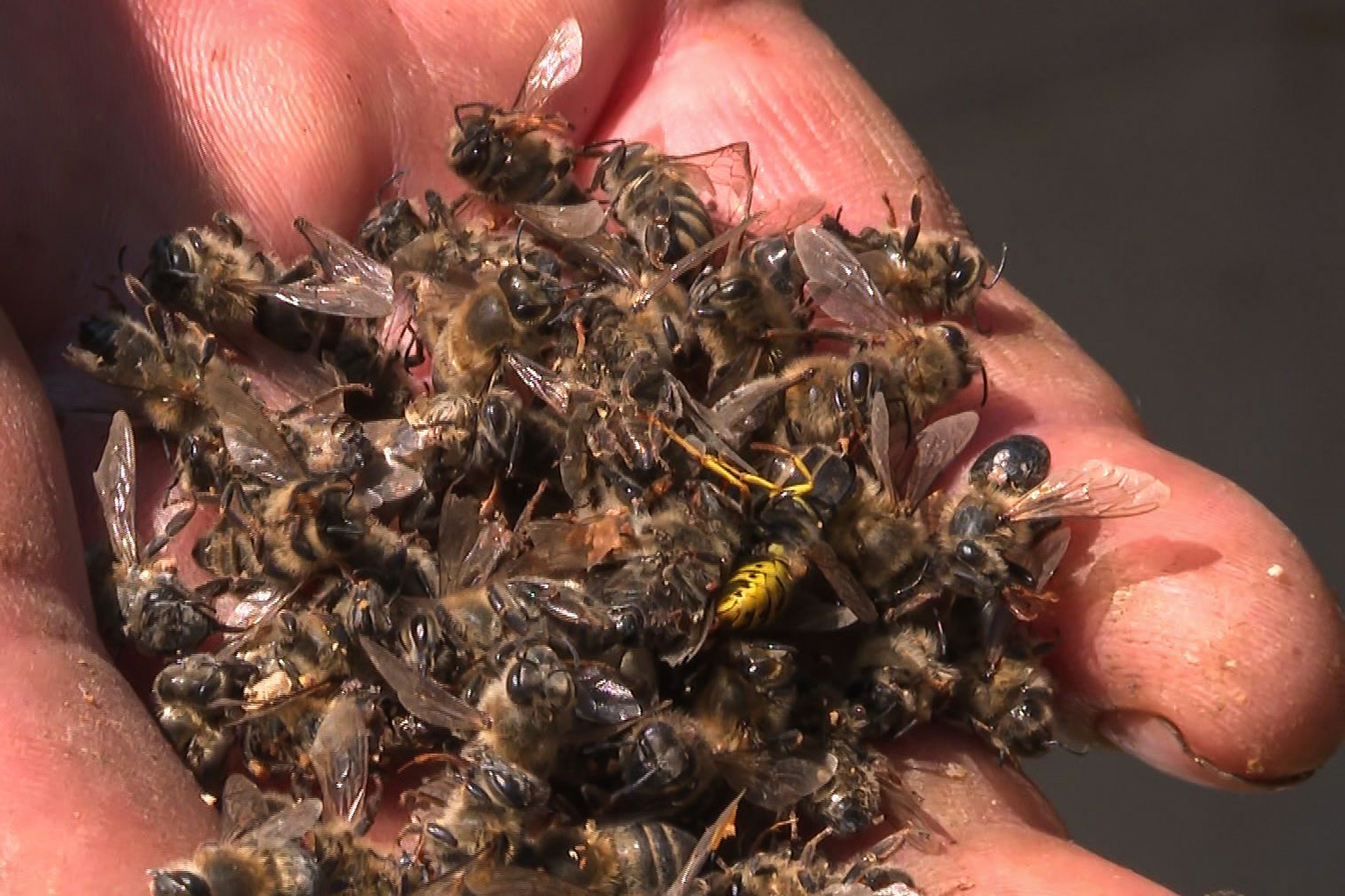Farmers in Yucatan, Mexico, have blamed Bayer-Monsanto for the loss of 300,000 bees due to a large-scale bee mortality. Around 100 apiaries and up to 2,500 hives were destroyed at San Francisco Suctuc and Crucero Oxá, both in the municipality of Hopelchén. According to the farmers, the cause of death is linked to aerial fumigation of corn, sorghum, and soy crops at the Zenit ranch near Crucero Oxá, which is run by agricultural behemoth Bayer-Monsanto.
Mexican beekeepers blame Bayer-Monsanto for the deaths of 300,000 bees
Though the lab has yet to prove it, beekeepers in Hopelchén, Mexico, are blaming Bayer-Monsanto for claimed economic losses of up to 12 million pesos (US $663,000). They claim the firm used planes to fly in and spray surrounding corn, sorghum, and soy crops. The bees pollinating in the region then took these toxins back to their hives, killing roughly 300,000 bees unwittingly. (1)
“One of Bayer’s engineers or technicians allowed us to take samples from one of their crops after the bees started to die,” José Manuel Poot Chan, one of the affected beekeepers, told the newspaper La Jornada Maya. “We are exhausting all possible legal instances, while members of the Welfare Ministry already came to offer humanitarian social aid to cover part of the damages,”
Loading...
The beekeepers have now demanded that Bayer-Monsanto pay them for their losses, and a committee of experts has been created to investigate the problem. If the claims are true, Bayer-Monsanto may face legal ramifications in Mexico.
Bayer-Monsanto They Might Not Be the Only People to Blame
Mennonite communities in the area could also be to blame. Chemical fumigation has also been reported by the Collective of Maya Communities of the Chenes, a nongovernmental organization in Hopelchén. A 2016 research discovered that Mennonite communities were using highly harmful herbicides such as carbofuran, imidacloprid, chlorphyrifos, and atrazine illegally. They were even discovered in the sea surrounding these communities. Worse, residues of the pesticide glyphosate were discovered in the farmers’ urine. Bayer-Monsanto is the manufacturer of this substance.
Mexican President López Obrador said in December 2020 that the pesticide glyphosate would be phased out by 2024. Environmentalists have applauded the decision, claiming that it will conserve Mexican flora and fauna. Bayer-Monsanto, as expected, is opposed. They claim that glyphosate is less dangerous than alternatives. Clearly, Mexican beekeepers disagree.
The Issue With Glyphosate
Bayer-Monsanto claims that its pesticide weed killer Round-Up is harmless for wildlife. Glyphosate is the active chemical in this product. It is the most frequently used herbicide on the planet. Unfortunately, it also kills honey bees in addition to weeds. (2)
Round-Up is a herbicide based on glyphosate that has been linked to cancer, infertility, and birth abnormalities. Frogs, fish, and birds are also poisoned by glyphosate. For decades after application, it can taint drinking water supplies and harm the soil.
Glyphosate, a systemic herbicide, is the active ingredient in Round-Up. It operates by infiltrating plant tissues and interfering with the production of specific proteins required for growth and survival. Because it does not degrade easily in soil or water, glyphosate kills weeds without harming crops or other plants in the region. (3)
In conclusion
Mexican beekeepers have drafted and published a joint statement condemning Bayer-Monsanto and the harm they have caused. They are hoping that the corporation would reimburse them for their losses and correct this wrong. However, as is customary with the terrible firm, I am confident that they will not go down without a long, drawn-out court struggle.
Sources
- Mexico News Daily
- Sierra Club
- “Glyphosate: Cancer and other health concerns.” US Right To Know. Stacy Malkan. March 1, 202.






